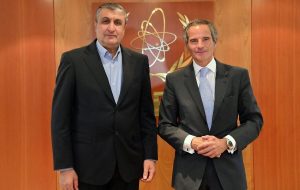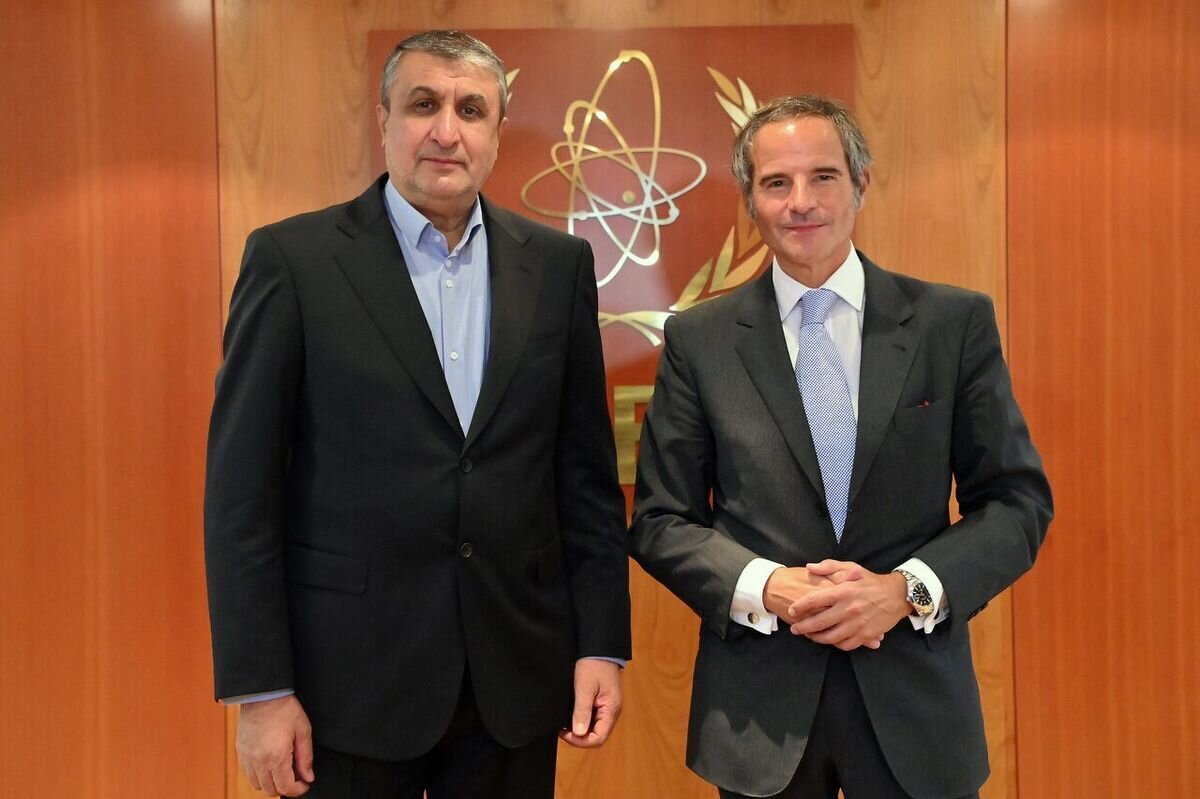IAEA Chief due in Tehran on Wednesday for key talks
TEHRAN – Rafael Grossi, the Director General of the International Atomic Energy Agency (IAEA), is scheduled to travel to Iran on Wednesday after following an invitation from the Iranian government. During his visit, Grossi is expected to engage in high-level discussions with Iranian officials and participate in technical talks regarding the joint statement established with


TEHRAN – Rafael Grossi, the Director General of the International Atomic Energy Agency (IAEA), is scheduled to travel to Iran on Wednesday after following an invitation from the Iranian government.
During his visit, Grossi is expected to engage in high-level discussions with Iranian officials and participate in technical talks regarding the joint statement established with Iran in March 2023.
“It is essential that we make substantive progress in the implementation of the joint statement agreed with Iran in March 2023,” Grossi said. “My visit to Tehran will be very important in that regard.”
“The essential matter is for Mr. Grossi to take decisive actions to tackle the challenges, which are primarily political,” remarked Mohammad Eslami, Head of the Atomic Energy Organization of Iran (AEOI), in reference to the implementation of the 2023 agreement.
Grossi’s forthcoming meetings in Tehran will further develop the conversations he had with Iranian Foreign Minister Abbas Araghchi during the United Nations General Assembly in September, as indicated by an IAEA statement.
On October 31, the IAEA chief shared on X that he had a “timely and substantive exchange” with Kazem Gharibabadi, Iran’s Deputy Foreign Minister for Legal and International Affairs, while preparing for his visit to Iran.
This will mark Grossi’s return to the Iranian capital since his last visit in May.
Iran considers the use of nuclear and chemical weapons a “cardinal and unforgivable sin,” as per the religious decree from Leader of the Islamic Revolution Ayatollah Seyyed Ali Khamenei.
Since the 1970s, Iran has been a signatory to the Treaty on the Non-Proliferation of Nuclear Weapons (NPT) and is recognized for its extensive cooperation with the International Atomic Energy Agency (IAEA).
In 2015, Iran successfully negotiated a nuclear agreement with the P5+1—a coalition of the five permanent members of the UN Security Council (China, France, Russia, the U.K., and the U.S.) alongside Germany—resulting in the establishment of the Joint Comprehensive Plan of Action (JCPOA).
Recently, Donald Trump, who had pulled the U.S. out of the nuclear accord in May 2018, has been elected as the 47th President of the United States and is scheduled to take office in January 2025.
The unilateral withdrawal from the nuclear agreement was coupled with unprecedented sanctions deemed illegal under international law, aimed at weakening Iran’s economy and exerting extreme pressure on the Iranian populace.
